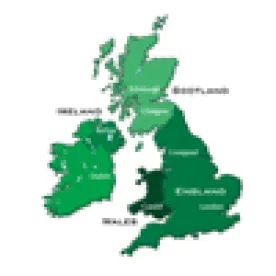COVID-19 is placing unprecedented strain on all businesses, and insolvency practitioner (“IP”) practices are no exception. Government-imposed restrictions on activities and movement will have a direct impact on the ability to carry on business as usual. There may be fewer employees available (through illness, self-isolation and furloughing), strain placed on remote working capabilities and a limited ability to carry out site visits to deal with cases as usual. Closure of schools and caring responsibilities may also lead to reduced personnel capacity. On top of this, the extreme financial pressures that businesses are facing is likely to lead to an increased demand for restructuring and insolvency services, putting additional pressure on capacity. The regulators and the Insolvency Service recognise this strain and are introducing measures to help support IPs during this time.
The Insolvency Service and the regulators are holding weekly meetings to discuss implications of the COVID-19 crisis and work together to provide support to those who need it and to introduce measures to ease the burden and support IPs. The IPA and the ICAEW have issued a joint statement on measures that they’ve introduced, but more measures are still to be agreed.
This note sets out some answers to key questions based on the guidance published to date. Please follow the hyperlinks for further guidance from the regulators and the Insolvency Service.
Are IP’s employees classed as “key workers”?
Government guidance lists those needed for “essential financial services provision” as key workers and this could include IPs and staff in linked roles. However, Government advice is to work from home “unless it is impossible” to do so. As a result, we would expect that the majority of IPs and staff will be working from home, except in the most exceptional circumstances. For example, if there is an urgent need for someone to be on site for a discrete task. We would encourage IPs to put procedures in place to control who can access the office or other premises and when they’re able to do so. However this should be limited to circumstances where access is strictly necessary and to the most limited extent possible.
There may be regulatory barriers to working remotely, so IPs should review their licences and contact their regulator for an explicit licence to operate remotely if they have any concerns.
All employees are now working remotely and we’re struggling to balance competing demands. Will there be any relaxation in regulatory requirements?
The message from the Insolvency Service and regulators seems to be one of pragmatism. The regulators recognise that social distancing, technological or other constraints caused by the COVID-19 pandemic can lead to delay and difficulties balancing competing demands and the suggestion is that they will bear this in mind when carrying out monitoring exercises. In addition, there is a strong argument that changes to operations and the impact of the COVID-19 crisis could amount to a “reasonable excuse” defence for any statutory breaches.
IPs should do as much as they can to operate in the “new normal”, but if deadlines cannot be met or capacity is overstretched, IPs should act pragmatically and keep a clear record of decisions made. The rationale behind such decisions should be clearly documented and IPs should ensure that they have followed ethical principles and have justifiable, sound reasons for reaching their decisions. However, there are some cases where missing statutory deadlines could have serious consequences. This includes administrations that are due to end. We would recommend conducting a review of active administrations that are due to expire in the upcoming months and assessing which may require an extension. Where an extension is required, IPs should take steps toward obtaining an extension in plenty of time, bearing in mind that the courts and creditors are also facing operational constraints and so turnaround times may be longer.
A number of case administrators are unavailable and remote working is meaning that tasks are taking longer. We’re seeing increased demand in the market and more businesses urgently need our help. How should we prioritise workloads?
The ICAEW and IPA joint statement sets out that it will be permissible to defer non-priority work on existing cases (such as investigatory work) to focus on new and urgent matters. The key to any deferral is that it should be on a “short-term basis” and IPs should take reasonable steps to progress case administration in the longer term and ensure stakeholder financial interests are not prejudiced.
In relation to IVAs, the statement also acknowledges that it may not be possible to comply with SIP 3.1 requirements to respond to debtor enquiries and to close IVAs ‘promptly’ and IPs are permitted to exercise discretion in managing caseload in this regard.
We would recommend that case administration and workload is kept under regular review, with resources being allocated appropriately. Whilst a short-term deferral of non-urgent work is acceptable, it is only a deferral and matters should be dealt with as soon as reasonably practicable. As and when capacity improves, these tasks should be picked up and sufficient resource should be allocated to existing cases to ensure progression and protect stakeholders in the long-term.
We have an upcoming monitoring visit. Will this still go ahead?
The IPA has published technical guidance setting out how inspection visits will be dealt with and a similar approach will be adopted by the ICAEW.
There will be no physical monitoring visits on practitioners’ premises for the next three months, but inspections will be taking place remotely (as far as possible). If you are awaiting a monitoring visit, an inspector should be in touch to discuss arrangements to supply information and conduct personal interviews remotely. This could include remote access to electronic case management systems, providing the regulator with a laptop containing the relevant files or couriering hard copy files to an inspector. IPs should ensure that, as far as possible, resource is made available to comply with any requests and people are able to access and provide relevant files.
Is the Insolvency Service still operating?
The Insolvency Service is following Government guidelines and working remotely. As a result, offices and certain telephone lines are closed. Please click here for information how to get in touch with relevant departments.
The Insolvency Service now no longer requires wet ink signatures on requisitions. Electronic signatures on requisitions will be accepted and will be checked against the signature on their database. CAU 103 and 104 forms will also now be accepted via email to customerservices.eas@insolvency.gov.uk and monies can be paid electronically using the details set out in Dear IP 95. They are aiming to process requests within 7 working days.
All Official Receiver and Long Term Asset Distribution Team offices are also closed. The Official Receiver is continuing to operate its services, but will not be able to process physical mail. You can contact the Official Receiver and LTADT by email.
Further guidance as to how the Insolvency Service is adjusting the way it delivers services during the pandemic can be found here.
Are we able to furlough our staff?
The Government has launched the Coronavirus Job Retention Scheme to enable employers to furlough staff. However, the ICAEW has announced that they would not expect IPs to furlough staff if doing so would compromise their ability to meet their obligations. Whilst the ICAEW and IPA are taking into account constraints caused by COVID-19 when considering conduct and have indicated that they will be allowing a degree of flexibility, we would not recommend furloughing staff if you would not then be able to comply with your statutory obligations.
If you do decide to furlough staff, this could constitute a change in circumstances that could require notification to the regulator.
Is there anything else I should be considering?
Without trying to provide a comprehensive list, a few additional points to consider are IPs should make sure that insolvency funds and assets are properly protected and all data fully secured during any periods of absence. IPs should also take all possible steps to locate and secure company books and records. They should also keep a record of their communications with directors regarding books and records and steps taken to locate and secure the records, whilst the current restrictions are in place.
It would also be prudent to nominate an alternate (assuming that you don’t have a joint appointee) and make your regulator aware of who that is so that creditors and estates are not prejudiced during any prolonged illness or inability to work.
The regulators are also encouraging engagement from members to alert them of any issues faced, to enable them to work with the Government to reach a solution. If you have any issues or concerns, please get in touch with your regulator.
Co-Authored By Emily Davis




 />i
/>i

